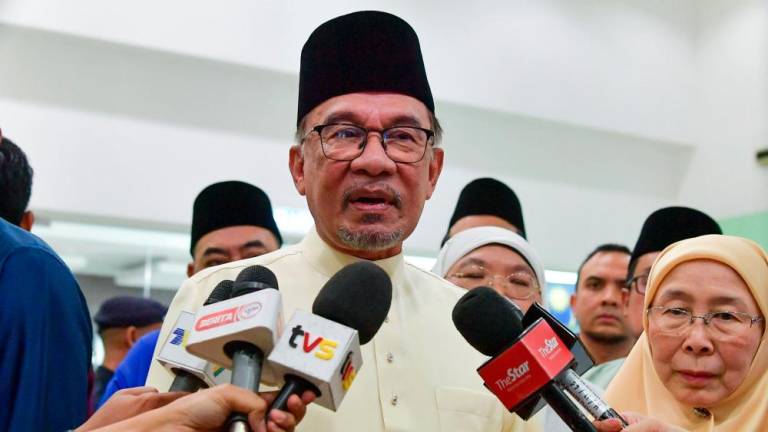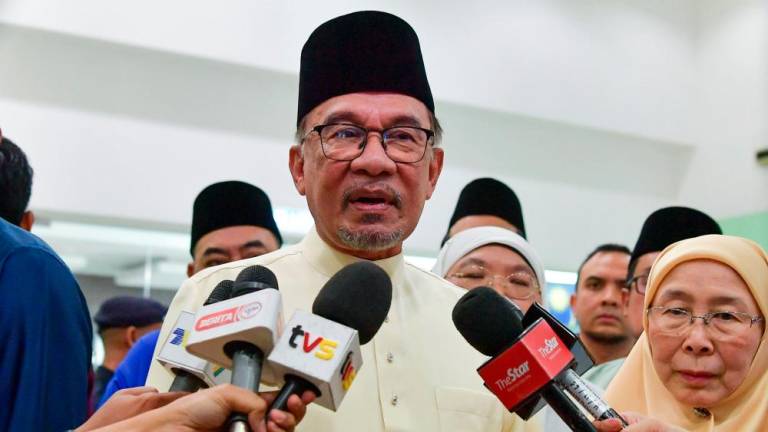PETALING JAYA: UOB Malaysia, which has forecast a 6% gross domestic product (GDP) growth for Malaysia in 2021 and a 5.5% GDP contraction this year, estimates that the economic costs of the recent conditional movement control order (CMCO) to be half of that of the previous enhanced movement control order (EMCO).
Although restrictions under the CMCO, which currently covers most of the country, are less stringent than before and allow economic activities to continue, they have also affected business and consumer sentiments in the fourth quarter of this year.
UOB Malaysia senior economist Julia Goh (pix) said the magnitude of the CMCO, in terms of economic costs, this time around is about RM17-22 billion compared with RM30-45 billion during the EMCO in March.
“It’s about 50% less, mainly because it’s not a nationwide lockdown and many of the economic sectors are still allowed to continue to operate. Consumers are more cautious in their spending because of heightened caution and financial uncertainties... those are the spillover effects of the CMCO. From a supply side perspective, the government has allowed the economic sectors to operate and this helps to reduce the economic costs from the third wave of Covid-19,” she said in an online media briefing today.
UOB expects the Malaysian economy to rebound next year as a result of government efforts to counter the effects of the pandemic, while improved external demand conditions will be another significant contributor to the country’s recovery.
Goh said the government’s ongoing policy support through various fiscal packages, Budget 2021 measures and the cumulative interest rate cuts to date will provide impetus for Malaysia’s recovery. The potential of an effective Covid-19 vaccine rollout, better-than-expected recovery of the global economy and Malaysia’s diversified economic fundamentals also point to a positive outlook for next year.
Other domestic drivers include the improved outlook, the sustained current account surplus, expectations of steady interest rates, and the key risk to watch for next year is how the global recovery pans out. Specific for Malaysia will be the next FTSE Russell review in March, any upcoming sovereign rating reviews by the international rating agencies and domestic political events.
“We expect a recovery in 2021 but we’re cautious given the lingering uncertainties surrounding the pandemic and the real world effectiveness of the vaccine. We think the recovery will continue into 2021, but it (the path to recovery) could be uneven. The silver linings are the projected recovery in external demand, fiscal stimulus measures and positive sentiment from the rollout of vaccines,” said Goh.
UOB’s forecasts are below the official forecast of 6.5-7.5% GDP growth for 2021 and -4.5% for 2020.
“We’re more conservative because we feel that there are still issues on the vaccine in terms of its approval, effectiveness, efficacy and we need a lot of people to be vaccinated before we can see a strong upside from that.
“In addition, the execution on government spending, particularly on development expenditure and infrastructure projects, is why our GDP forecast is below official projections. Even with infrastructure projects, when you have pandemic risks still persisting, it’s likely that current SOPs will remain going into H1’21. We input some of the executional risks into our forecast.”
Due to the low base effect of a 5.5% GDP contraction estimate this year, she said all sectors should see a sharp rebound next year.
“With the vaccine and assuming that the CMCO ends and restrictions are relaxed, we could see a release of pent-up demand and we should see consumption-driven related sectors recover in 2021.”
With the gradual US dollar weakness, stable commodity prices and strengthening of China’s renminbi, UOB forecasts the ringgit to move towards RM4.05 against the US dollar in 2021.
“The outlook for the ringgit is on the back of broad dollar weakness and the Asia recovery story, particularly in China, which will lead Asian currencies, including the ringgit, to strengthen further. We expect higher crude oil prices that would reinforce the positive sentiment towards ringgit,” said Goh.
She added that the approval of the Budget 2021 at the policy stage is affirmative for investor confidence but lingering political uncertainties may keep investors on the sidelines.
However, investments planned before the pandemic should carry through, especially when there are signs of global recovery.













